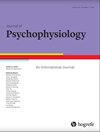你的血管里流淌着攻击性?被拘留青少年的心率、心率变异性与攻击性的关系
IF 0.9
4区 心理学
Q4 NEUROSCIENCES
引用次数: 0
摘要
摘要:目的:攻击行为是青少年再犯最重要的动态危险因素之一。攻击性的生理基础,如自主神经系统(ANS)的功能,需要进一步研究,以最终改善诊断和治疗方法。因此,本初步研究考察了ANS基础功能(即静息心率[HR]和心率变异性[HRV])与主动攻击和反应性攻击之间是否存在关系;被拘留青少年的自主行为反应(即应激条件下的HR(V))与主动攻击和被动攻击之间的关系。方法:研究对象为来自荷兰一家全男孩少年拘留中心的27名被拘留的男孩(Mage = 17.37, SD = 1.31)。评估特质水平的主动和被动攻击、心脏测量和潜在的生活方式协变量。Pearson和Spearman相关及多层次回归分析。结果:结果显示,ANS基础功能、ANS反应性和主动和反应性攻击之间没有显著的关联。结论:本研究增加了对静息HR(V)和HR(V)反应与两种攻击形式之间关系的认识,并为该领域的进一步研究提供了建议。本文章由计算机程序翻译,如有差异,请以英文原文为准。
Aggression Running Through Your Veins? The Relationship Between Heart Rate, Heart Rate Variability, and Aggression in Detained Juveniles
Abstract: Aims: Aggression is one of the most important dynamic risk factors for recidivism in juveniles. The physiological underpinnings of aggression, such as the functioning of the Autonomic Nervous System (ANS), need further investigation to eventually improve diagnostics and treatment practices. Therefore, the present pilot study examined whether relations exist between ANS basal functioning (i.e., resting Heart Rate [HR] and Heart Rate Variability [HRV]) and proactive and reactive aggression; and between ANS responsivity (i.e., HR(V) in response to stressful conditions) and pro- and reactive aggression in detained juveniles. Methods: Participants were 27 detained boys ( Mage = 17.37, SD = 1.31) from an all-boy Juvenile Detention Center in the Netherlands. Trait-level proactive and reactive aggression, cardiac measures, and potential lifestyle covariates were assessed. Pearson and Spearman correlations and multiple hierarchical regression analyses were conducted. Results: Results showed no significant associations between ANS basal functioning, ANS responsivity, and proactive and reactive aggression. Conclusions: This study adds to the literature by increasing knowledge on the link between both resting HR(V) as well as HR(V) responsivity and both forms of aggression and provides recommendations to further advance research in this field.
求助全文
通过发布文献求助,成功后即可免费获取论文全文。
去求助
来源期刊

Journal of Psychophysiology
医学-神经科学
CiteScore
2.60
自引率
7.70%
发文量
25
审稿时长
>12 weeks
期刊介绍:
The Journal of Psychophysiology is an international periodical that presents original research in all fields employing psychophysiological measures on human subjects. Contributions are published from psychology, physiology, clinical psychology, psychiatry, neurosciences, and pharmacology. Communications on new psychophysiological methods are presented as well. Space is also allocated for letters to the editor and book reviews. Occasional special issues are devoted to important current issues in psychophysiology.
 求助内容:
求助内容: 应助结果提醒方式:
应助结果提醒方式:


